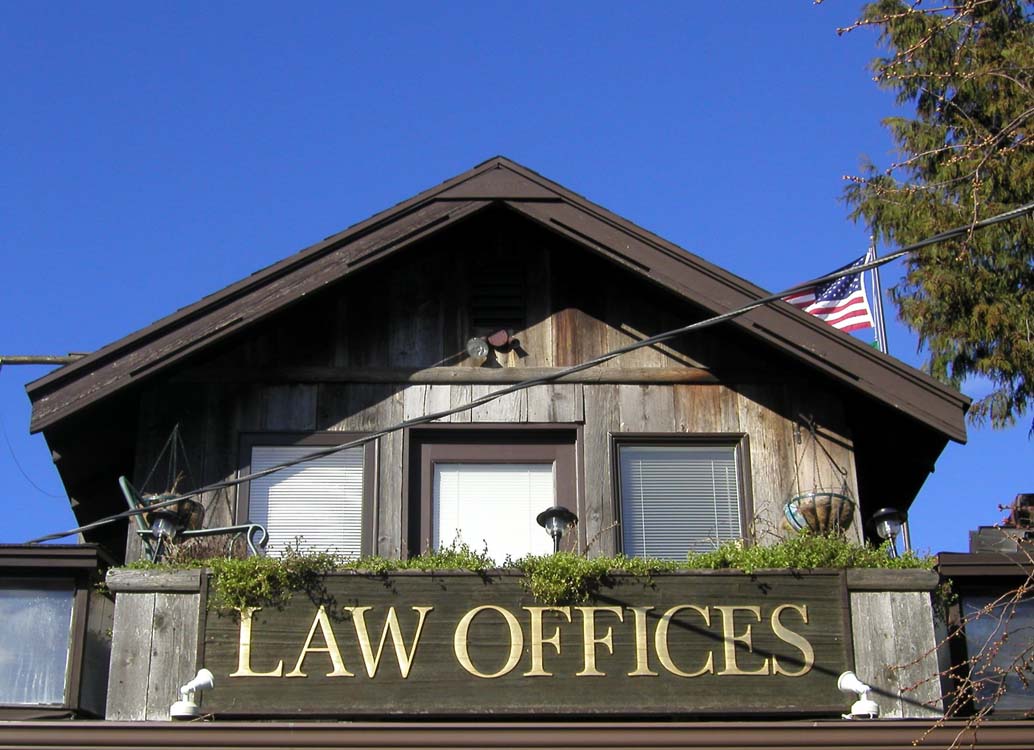Facing false accusations feels like your world is crashing down. One moment you’re living your normal life, and the next you’re defending yourself against claims that simply aren’t true. Whether someone has accused you of workplace misconduct, criminal activity, or domestic abuse, these allegations can destroy your career, damage your relationships, and even land you in jail. That’s why obtaining guidance for victims of false accusations becomes your most important priority when facing such a crisis. Understanding your rights and taking immediate strategic action can mean the difference between clearing your name and suffering long-term consequences.
Essential Points to Remember
- Create detailed records of all communications, events, and evidence from day one
- Resist the urge to contact your accuser or make public statements without legal advice
- Secure experienced legal representation before speaking with investigators or prosecutors
- Compile proof of your innocence including alibis, messages, and witness statements
- Remember that accusers must prove guilt—you don’t have to prove innocence
What Happens When You’re Wrongly Accused
False accusations devastate lives in ways most people never imagine until it happens to them. When someone makes false accusations against you, the ripple effects touch every aspect of your existence. Your employer may suspend or terminate you based solely on allegations. Friends and family members might distance themselves, unsure what to believe. Law enforcement could investigate you, and prosecutors might file charges despite lacking solid evidence.
The legal system, while designed to protect the innocent, doesn’t always work perfectly. Once accusations enter the official record, they can follow you for years. Background checks may reveal arrest records even if charges were later dropped. Online searches might display news articles about the allegations forever. Understanding this reality helps you grasp why immediate, decisive action matters so much.
The Psychological Impact of False Claims
Being accused of something you didn’t do creates intense emotional turmoil. You might experience anger, confusion, betrayal, and fear all at once. Sleep becomes difficult as you replay scenarios in your mind, wondering how this happened and what comes next. Anxiety about the future can become overwhelming as you imagine worst-case scenarios.
Many victims of false accusations develop symptoms similar to post-traumatic stress disorder. They become hypervigilant, constantly worried about what others think or say about them. Trust issues emerge, making it hard to maintain existing relationships or form new ones. Some people withdraw socially, feeling ashamed even though they’ve done nothing wrong.
How False Accusations Affect Your Personal Life
Your relationships suffer tremendously under the weight of false accusations. Spouses or partners may question whether to stand by you, especially if the allegations involve infidelity, violence, or financial impropriety. Children might hear rumors at school or from relatives, creating confusion and pain for the entire family.
Professional networks often dissolve quickly when accusations surface. Colleagues may avoid association with you to protect their own reputations. Business opportunities evaporate as potential partners conduct due diligence and discover the allegations. Even after proving your innocence, rebuilding these professional connections takes considerable time and effort.
Your First Response Matters Most
How you react in the initial hours and days after learning about false accusations significantly impacts your case outcome. Many people make critical mistakes during this vulnerable period, damaging their defense before they even realize they need one. Emotions run high, and the natural impulse to defend yourself loudly can backfire spectacularly.
Document Every Detail Immediately
Start creating comprehensive records the moment you become aware of the accusations. Write down everything you remember about relevant dates, times, locations, and interactions. If the accusation relates to a specific incident, reconstruct your whereabouts and activities during that timeframe with as much detail as possible.
Save all electronic communications that might relate to the case. Don’t delete emails, text messages, social media posts, or voicemails, even if they seem embarrassing or unflattering. Your attorney can determine what’s relevant and admissible. Take screenshots of important digital evidence in case the accuser tries to modify or delete their posts later.
Keep a detailed journal documenting your emotional state, conversations with others about the accusations, and any developments in the case. This contemporaneous record can prove valuable later when recalling specific details becomes difficult. Date and time-stamp each entry to establish credibility.
Why Silence Can Protect You
Your natural instinct might be to explain yourself, correct the record, or confront your accuser directly. Resist these urges completely. Anything you say can and will be twisted, taken out of context, or used against you in legal proceedings. Even statements made to friends or family members might become evidence if they’re called to testify.
Law enforcement officers may contact you for questioning, presenting it as an opportunity to “clear things up” or “tell your side.” Don’t fall for this approach. Politely decline to speak without your attorney present, no matter how innocent it seems. Police interrogations are designed to elicit incriminating statements, not to exonerate you.
Social media presents particular dangers when you’re facing false accusations. Don’t post about the case, respond to accusations online, or try to rally public support through digital platforms. Prosecutors and opposing counsel will scrutinize your social media activity, looking for inconsistencies or statements they can use against you.
Getting Legal Help Without Delay
Hiring an experienced defense attorney represents your single most important action when facing false accusations. Don’t wait to see if the situation resolves itself or hope that your innocence alone will protect you. The legal system is complex, and navigating it without expert guidance puts you at tremendous disadvantage.
Look for attorneys who specialize in the specific type of accusation you’re facing. Criminal defense lawyers, employment attorneys, and family law specialists have different expertise. Choose someone with a proven track record defending against similar false claims.
During your initial consultation, ask direct questions about the attorney’s experience, strategy, and expected outcomes. Discuss fee structures upfront to avoid surprises later. Most importantly, find someone you trust and feel comfortable with, since you’ll be sharing sensitive information and working closely together.
Crafting a Strong Defense Against Lies
Building a solid defense requires methodical preparation and strategic thinking. Your attorney will guide this process, but understanding the key elements helps you participate effectively in your own defense. The goal is assembling overwhelming evidence that disproves the accusations and demonstrates your accuser’s lack of credibility.
Collecting Evidence That Proves Your Innocence
Physical evidence can conclusively disprove false accusations in many cases. If you’re accused of being somewhere you weren’t, gather receipts, surveillance footage, GPS data, or other documentation showing your actual location. Credit card statements, phone records, and digital timestamps provide objective proof that contradicts false claims.
Digital forensics often plays a crucial role in modern false accusation cases. Metadata from photos can prove when and where they were taken. Email headers reveal actual send times versus what accusers claim. Deleted messages might be recoverable through forensic analysis, exposing inconsistencies in the accuser’s story.
Medical records, workplace logs, and official documents can all serve as powerful evidence. If accusations claim you did something physically impossible given your medical condition, documented health records support your defense. Time-stamped security badge swipes at work might prove you were at the office when the alleged incident supposedly occurred elsewhere.
Finding People Who Can Verify Your Truth
Witness testimony provides critical support for your defense. Identify everyone who can corroborate your version of events or contradict the accuser’s claims. These might include friends, family members, coworkers, neighbors, or even strangers who happened to be present during relevant times.
Character witnesses who can speak to your reputation and typical behavior also strengthen your case. Long-time acquaintances, professional colleagues, and community members who know you well can testify that the accused behavior seems completely out of character for you.
Your attorney will interview potential witnesses to assess their credibility and determine how their testimony fits into your overall defense strategy. Some witnesses provide direct evidence disproving the accusations, while others offer circumstantial evidence that raises doubts about the accuser’s reliability.
Who Must Prove What in Court
Understanding burden of proof is essential when defending against false accusations. In criminal cases, prosecutors must prove your guilt beyond reasonable doubt—an extremely high standard. You don’t have to prove your innocence; you simply need to create reasonable doubt about the prosecution’s claims.
Civil cases involving false accusations use a lower standard called preponderance of evidence, meaning more likely than not. Even with this lower threshold, the accuser still bears the burden of proving their claims are true. Your defense focuses on demonstrating that their evidence falls short of meeting even this reduced standard.
Many false accusation cases collapse because accusers can’t produce sufficient evidence to meet their burden of proof. When claims rely solely on uncorroborated testimony without physical evidence, witness support, or logical consistency, they often fail in court.
Why Expert Legal Support Makes the Difference
Experienced attorneys understand the nuances of defending false accusation cases that general practitioners might miss. They’ve seen patterns in how accusers fabricate claims and know effective strategies for exposing inconsistencies. This specialized knowledge can be the difference between conviction and exoneration.
Navigating Complex Legal Systems Successfully
Legal procedures involve strict deadlines, technical requirements, and strategic decisions that significantly impact case outcomes. Filing the wrong motion, missing a deadline, or failing to preserve certain evidence can damage your defense irreparably. Experienced attorneys handle these procedural matters while you focus on supporting the defense strategy.
Discovery processes allow your attorney to obtain evidence from prosecutors, witnesses, and the accuser. Knowing what to request, how to phrase demands, and when to push for information requires skill and experience. Expert attorneys extract information that less experienced lawyers might overlook.
Pretrial motions can sometimes resolve cases before trial begins. Motions to dismiss, suppress evidence, or exclude testimony can weaken the prosecution’s case or eliminate charges entirely. Understanding when and how to file these motions requires deep legal knowledge and strategic thinking.
Challenging Accusations With Professional Strategy
Effective defense attorneys don’t just react to accusations—they build proactive strategies that systematically dismantle false claims. This might involve hiring expert witnesses, conducting independent investigations, or developing alternative explanations for evidence that prosecutors misinterpret.
Cross-examination represents a critical skill in false accusation cases. Experienced attorneys know how to question accusers in ways that expose lies, inconsistencies, and ulterior motives. They prepare thoroughly, anticipating responses and planning follow-up questions that trap dishonest witnesses in contradictions.
Negotiation skills also matter tremendously in false accusation cases. Sometimes prosecutors remain willing to reduce or dismiss charges when presented with compelling evidence of innocence. Skilled attorneys leverage this evidence to negotiate favorable outcomes without going to trial.
Safeguarding Your Good Name
Your reputation deserves protection even while legal proceedings unfold. False accusations spread quickly through communities and online networks, causing damage that persists long after you’ve been exonerated. Taking strategic steps to manage public perception helps minimize long-term harm to your personal and professional reputation.
Controlling the Narrative During Your Case
While you shouldn’t discuss your case publicly, you may need to address it with certain people. Develop a brief, consistent statement you can share with employers, close friends, or family members who ask direct questions. Focus on maintaining your innocence without providing details that could be misconstrued.
Consider whether a public statement through your attorney might be appropriate. In high-profile cases, allowing false accusations to go completely unanswered can sometimes do more harm than good. Your lawyer can craft carefully worded statements that assert your innocence without compromising your legal defense.
Monitor online discussions about your case and document particularly harmful false statements. While you shouldn’t engage directly, this documentation may support future defamation claims against those who spread malicious lies about you.
Smart Social Media Practices When Accused
Temporarily deactivating social media accounts often makes sense when facing false accusations. This prevents you from making impulsive posts you’ll later regret and reduces opportunities for others to screenshot and misconstrue your content.
If you maintain social media presence, adjust privacy settings to limit who can view your posts and information. Remove or hide old posts that might be taken out of context. Ask trusted friends to avoid tagging you in photos or posts until your legal situation resolves.
Never post anything that could be interpreted as admission, apology, or acknowledgment of wrongdoing. Even sympathetic statements like “I’m sorry you feel that way” can be twisted to suggest guilt. Keep your social media content completely neutral regarding the accusations.
Different Scenarios Where False Claims Arise
False accusations emerge in various contexts, each with unique characteristics and challenges. Understanding common scenarios helps you recognize patterns and respond appropriately when accusations arise.
Unfounded Accusations at Work
Workplace false accusations often involve claims of harassment, discrimination, theft, or policy violations. Sometimes disgruntled coworkers make false reports to damage competitors for promotions or favorable assignments. Other times, employees facing discipline try to deflect attention by accusing those investigating them.
These cases typically involve internal HR investigations before potentially escalating to legal proceedings. Cooperate with legitimate workplace investigations while exercising your right to have legal counsel review any statements before you provide them. Document all workplace interactions and maintain copies of performance reviews, emails, and other records supporting your professional reputation.
Misused Protection Orders and Domestic Claims
False allegations of domestic violence represent particularly damaging accusations. Some people exploit protective order systems to gain tactical advantages in divorce proceedings, custody disputes, or relationship conflicts. Courts often grant temporary restraining orders based solely on uncorroborated allegations, immediately impacting your access to your home, children, and property.
These cases require immediate legal intervention because protective orders carry serious consequences even before you have opportunity to contest them. Violating a protective order, even unknowingly, can result in criminal charges. Your attorney can help you understand the order’s terms and file appropriate responses to contest false allegations.
Baseless Criminal Charges
False criminal accusations range from theft and assault to more serious felonies. Motivations vary widely—revenge for perceived slights, covering up the accuser’s own misconduct, financial gain through lawsuits, or simply mistaken identity. Regardless of motive, criminal accusations trigger investigations and potential prosecution with devastating consequences.
Never speak to law enforcement without your attorney present, no matter how confident you feel in your innocence. Police interviews are designed to build cases, not exonerate suspects. Even truthful statements can be misinterpreted or taken out of context in ways that support prosecution theories.
Legal Protections Available to You
The legal system provides important protections for people facing false accusations, though these safeguards don’t always work perfectly. Understanding your rights helps ensure you receive all protections the law provides.
Your Constitutional Rights Explained
The Fifth Amendment protects you against self-incrimination, meaning you can’t be forced to testify against yourself. This right applies during police questioning, grand jury proceedings, and criminal trials. Invoking this right doesn’t suggest guilt—it’s a fundamental protection every accused person should exercise.
The Sixth Amendment guarantees your right to legal counsel in criminal cases. If you can’t afford an attorney, the court must appoint one to represent you. While public defenders often carry heavy caseloads, they’re trained professionals who can provide competent representation.
You also have rights to confront witnesses against you, receive timely notification of charges, and access evidence prosecutors plan to use. Your attorney ensures these rights are protected throughout legal proceedings.
Why Innocence is Presumed Until Proven Otherwise
Presumption of innocence represents a cornerstone of American criminal justice. Prosecutors must prove guilt; you don’t have to prove innocence. This principle means juries should acquit if prosecution evidence leaves reasonable doubt about your guilt.
However, this presumption doesn’t always translate into public perception. Once accused, many people face social stigma regardless of legal outcomes. This reality makes protecting your reputation and fighting false accusations aggressively even more important.
Rebuilding After Clearing Your Name
Exoneration doesn’t instantly restore everything false accusations destroyed. Rebuilding your life, reputation, and relationships requires time, effort, and sometimes legal action against those who falsely accused you.
Consider whether pursuing defamation claims, malicious prosecution suits, or other legal remedies against your accuser makes sense. These cases are difficult to win but can provide vindication and compensation for damages you suffered. Discuss options with your attorney once your criminal or civil case concludes.
Focus on reconnecting with people who stood by you and gradually rebuilding relationships with those who distanced themselves. Be patient with loved ones who struggled to support you—false accusations create difficult situations for everyone involved. Therapy or counseling can help you process the trauma and develop healthy coping strategies.
Professional reputation repair might require strategic communications with employers, industry contacts, and professional organizations. Consider whether issuing public statements about your exoneration would help or whether quietly moving forward serves you better.
What should I do immediately if someone falsely accuses me?
Stay calm, avoid confronting the accuser, and hire an experienced attorney immediately. Document everything related to the accusation and don’t make any statements to police, investigators, or others without legal counsel present.
Can false accusations ruin my life even if I’m found innocent?
Yes, false accusations can cause lasting damage to your reputation, relationships, and career even after you’re exonerated. That’s why aggressive legal defense and reputation management during the case are essential.
How do I prove someone is lying about me?
Gather evidence contradicting their claims, identify witnesses who support your version of events, and work with your attorney to expose inconsistencies in the accuser’s story. Your lawyer can use cross-examination to reveal lies and ulterior motives.









